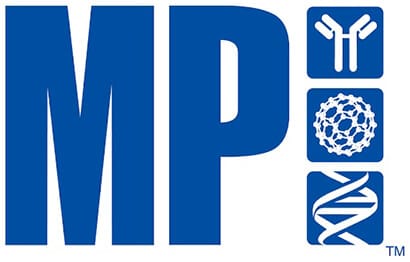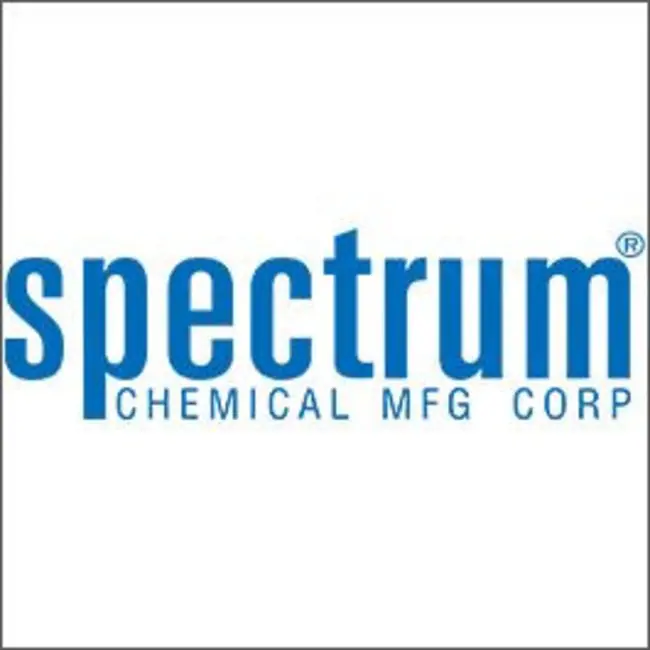Shop
Showing 257451–257500 of 278485 results
-
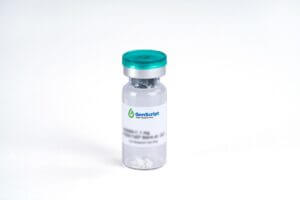
TNF-α, Rat
$953.06 Add to cart View Product DetailsTumor Necrosis Factor-Alpha (TNF-alpha) plays a major role in growth regulation, differentiation, inflammation, viral replication, tumorigenesis, and autoimmune disease. Besides inducing hemorrhagic necrosis of tumors, TNF has been found to be involved in tumorigenesis, tumor metastasis, viral replication, septic shock, fever, inflammation, and autoimmune disease including Crohn’s disease, rheumatoid arthritis and graft-versus-host disease. TNF alpha-1a is a potent lymphoid factor that exerts cytotoxic effects on a wide range of tumor cells and certain other target cells.
-
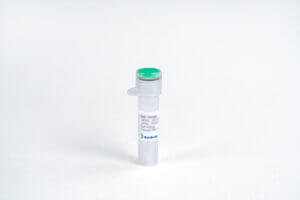
TNF-α, Rat
$51.75 Add to cart View Product DetailsTumor Necrosis Factor-Alpha (TNF-alpha) plays a major role in growth regulation, differentiation, inflammation, viral replication, tumorigenesis, and autoimmune disease. Besides inducing hemorrhagic necrosis of tumors, TNF has been found to be involved in tumorigenesis, tumor metastasis, viral replication, septic shock, fever, inflammation, and autoimmune disease including Crohn’s disease, rheumatoid arthritis and graft-versus-host disease. TNF alpha-1a is a potent lymphoid factor that exerts cytotoxic effects on a wide range of tumor cells and certain other target cells.
-

TNF-α, Rat
$133.69 Add to cart View Product DetailsTumor Necrosis Factor-Alpha (TNF-alpha) plays a major role in growth regulation, differentiation, inflammation, viral replication, tumorigenesis, and autoimmune disease. Besides inducing hemorrhagic necrosis of tumors, TNF has been found to be involved in tumorigenesis, tumor metastasis, viral replication, septic shock, fever, inflammation, and autoimmune disease including Crohn’s disease, rheumatoid arthritis and graft-versus-host disease. TNF alpha-1a is a potent lymphoid factor that exerts cytotoxic effects on a wide range of tumor cells and certain other target cells.
-

TNF-β, Human
$1,323.94 Add to cart View Product DetailsTNF is secreted by macrophages, monocytes, neutrophils, T-cells, NK-cells following their stimulation by bacterial LPS. Cells expressing CD4 secrete TNF-alpha while CD8 cells secrete little or no TNF-alpha. The synthesis of TNF-alpha is induced by many different stimuli including interferons, IL2, GM-CSF. TNF-β is a potent mediator of inflammatory and immune responses. It belongs to the TNF family of ligands, and signals through TNFR1 and TNFR2. TNF-β is produced by activated T and B lymphocytes, and has similar activities to TNF-α. It mediates a large variety of inflammatory, immunostimulatory, and antiviral responses.
-

TNF-β, Human
$63.83 Add to cart View Product DetailsTNF is secreted by macrophages, monocytes, neutrophils, T-cells, NK-cells following their stimulation by bacterial LPS. Cells expressing CD4 secrete TNF-alpha while CD8 cells secrete little or no TNF-alpha. The synthesis of TNF-alpha is induced by many different stimuli including interferons, IL2, GM-CSF. TNF-β is a potent mediator of inflammatory and immune responses. It belongs to the TNF family of ligands, and signals through TNFR1 and TNFR2. TNF-β is produced by activated T and B lymphocytes, and has similar activities to TNF-α. It mediates a large variety of inflammatory, immunostimulatory, and antiviral responses.
-

TNF-β, Human
$155.25 Add to cart View Product DetailsTNF is secreted by macrophages, monocytes, neutrophils, T-cells, NK-cells following their stimulation by bacterial LPS. Cells expressing CD4 secrete TNF-alpha while CD8 cells secrete little or no TNF-alpha. The synthesis of TNF-alpha is induced by many different stimuli including interferons, IL2, GM-CSF. TNF-β is a potent mediator of inflammatory and immune responses. It belongs to the TNF family of ligands, and signals through TNFR1 and TNFR2. TNF-β is produced by activated T and B lymphocytes, and has similar activities to TNF-α. It mediates a large variety of inflammatory, immunostimulatory, and antiviral responses.
-
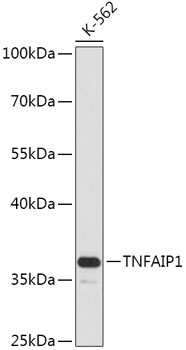
TNFAIP1 Rabbit pAb
$239.89 Add to cart View Product DetailsPolyclonal Antibodies
-

TNFAIP1 Rabbit pAb
$86.94 Add to cart View Product DetailsPolyclonal Antibodies
-

TNFAIP3 Rabbit mAb
$103.04 Add to cart View Product DetailsMonoclonal Antibodies
-

TNFAIP3 Rabbit mAb
$264.04 Add to cart View Product DetailsMonoclonal Antibodies
-

TNFAIP3 Rabbit pAb
$86.94 Add to cart View Product DetailsPolyclonal Antibodies
-
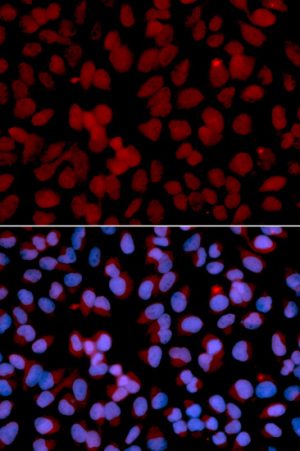
TNFAIP3 Rabbit pAb
$239.89 Add to cart View Product DetailsPolyclonal Antibodies
-

TNFAIP3 Rabbit pAb
$86.94 Add to cart View Product DetailsPolyclonal Antibodies
-

TNFAIP3 Rabbit pAb
$239.89 Add to cart View Product DetailsPolyclonal Antibodies
-
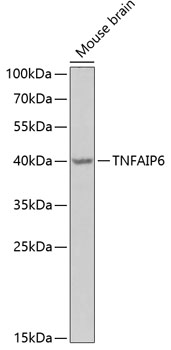
TNFAIP6 Rabbit pAb
$239.89 Add to cart View Product DetailsPolyclonal Antibodies
-

TNFAIP6 Rabbit pAb
$86.94 Add to cart View Product DetailsPolyclonal Antibodies
-

TNFAIP8L2 Rabbit pAb
$86.94 Add to cart View Product DetailsPolyclonal Antibodies
-

TNFAIP8L2 Rabbit pAb
$239.89 Add to cart View Product DetailsPolyclonal Antibodies
-

TNFR1/TNFRSF1A Rabbit pAb
$239.89 Add to cart View Product DetailsPolyclonal Antibodies
-

TNFR1/TNFRSF1A Rabbit pAb
$86.94 Add to cart View Product DetailsPolyclonal Antibodies
-

TNFR2/TNFRSF1B Rabbit mAb
$103.04 Add to cart View Product DetailsMonoclonal Antibodies
-

TNFR2/TNFRSF1B Rabbit mAb
$264.04 Add to cart View Product DetailsMonoclonal Antibodies
-

TNFR2/TNFRSF1B Rabbit pAb
$239.89 Add to cart View Product DetailsPolyclonal Antibodies
-
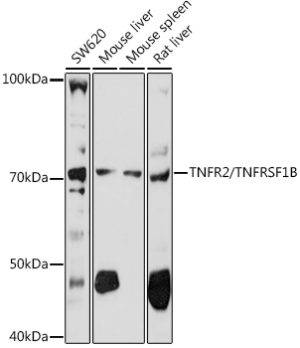
TNFR2/TNFRSF1B Rabbit pAb
$239.89 Add to cart View Product DetailsPolyclonal Antibodies
-

TNFR2/TNFRSF1B Rabbit pAb
$86.94 Add to cart View Product DetailsPolyclonal Antibodies
-

TNFR2/TNFRSF1B Rabbit pAb
$86.94 Add to cart View Product DetailsPolyclonal Antibodies
-

TNFRSF10A Rabbit pAb
$239.89 Add to cart View Product DetailsPolyclonal Antibodies
-
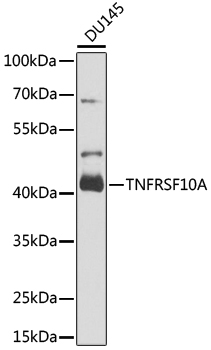
TNFRSF10A Rabbit pAb
$86.94 Add to cart View Product DetailsPolyclonal Antibodies
-

TNFRSF10A Rabbit pAb
$239.89 Add to cart View Product DetailsPolyclonal Antibodies
-

TNFRSF10A Rabbit pAb
$86.94 Add to cart View Product DetailsPolyclonal Antibodies
-
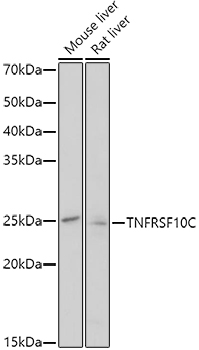
TNFRSF10C Rabbit pAb
$86.94 Add to cart View Product DetailsPolyclonal Antibodies
-

TNFRSF10C Rabbit pAb
$239.89 Add to cart View Product DetailsPolyclonal Antibodies
-

TNFRSF10D Rabbit pAb
$86.94 Add to cart View Product DetailsPolyclonal Antibodies
-

TNFRSF10D Rabbit pAb
$239.89 Add to cart View Product DetailsPolyclonal Antibodies
-

TNFRSF10D/TRAILR4 Rabbit mAb
$264.04 Add to cart View Product DetailsMonoclonal Antibodies
-

TNFRSF10D/TRAILR4 Rabbit mAb
$103.04 Add to cart View Product DetailsMonoclonal Antibodies
-

TNFRSF11A Rabbit pAb
$239.89 Add to cart View Product DetailsPolyclonal Antibodies
-

TNFRSF11A Rabbit pAb
$239.89 Add to cart View Product DetailsPolyclonal Antibodies
-

TNFRSF11A Rabbit pAb
$86.94 Add to cart View Product DetailsPolyclonal Antibodies
-

TNFRSF11A Rabbit pAb
$86.94 Add to cart View Product DetailsPolyclonal Antibodies
-

TNFRSF11B Rabbit pAb
$239.89 Add to cart View Product DetailsPolyclonal Antibodies
-

TNFRSF11B Rabbit pAb
$86.94 Add to cart View Product DetailsPolyclonal Antibodies
-
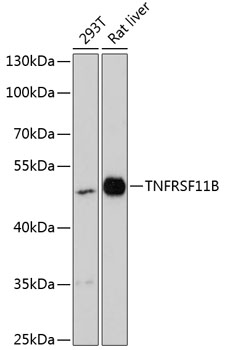
TNFRSF11B Rabbit pAb
$86.94 Add to cart View Product DetailsPolyclonal Antibodies
-

TNFRSF11B Rabbit pAb
$239.89 Add to cart View Product DetailsPolyclonal Antibodies
-
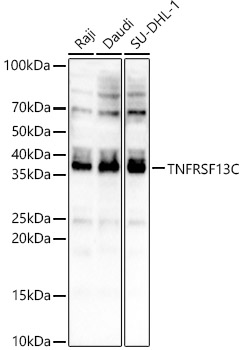
TNFRSF13C Rabbit pAb
$239.89 Add to cart View Product DetailsPolyclonal Antibodies
-

TNFRSF13C Rabbit pAb
$86.94 Add to cart View Product DetailsPolyclonal Antibodies
-

TNFRSF17 Rabbit pAb
$239.89 Add to cart View Product DetailsPolyclonal Antibodies
-

TNFRSF17 Rabbit pAb
$86.94 Add to cart View Product DetailsPolyclonal Antibodies
-
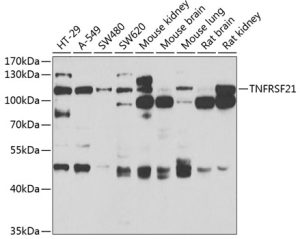
TNFRSF21 Rabbit pAb
$86.94 Add to cart View Product DetailsPolyclonal Antibodies
-

TNFRSF21 Rabbit pAb
$239.89 Add to cart View Product DetailsPolyclonal Antibodies



